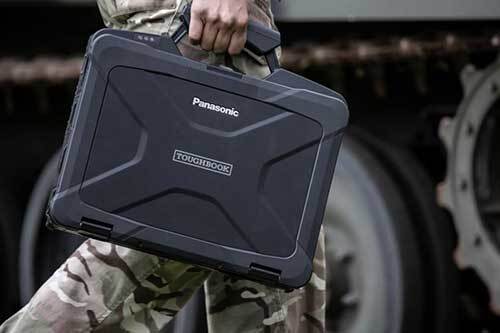
“MIL-STD” and “IP rating” are standards used to specify and evaluate the durability and environmental resistance of IT hardware and other electronic devices. These standards are important because they provide a common framework for assessing the ruggedness and reliability of equipment, ensuring they can withstand various environmental conditions and operate in demanding situations.
- MIL-STD (Military Standard):
- Purpose: MIL-STDs are a set of standards developed by the U.S. Department of Defense (DoD) and other agencies to establish requirements for military equipment and systems. While initially intended for military use, they are often applied to other industries where ruggedness and reliability are essential, such as aerospace, industrial, and some consumer applications.
- Importance: MIL-STDs ensure that hardware can withstand harsh environmental conditions, shock, vibration, and electromagnetic interference. They specify testing procedures and criteria for compliance, allowing manufacturers to produce equipment that can operate reliably in challenging environments.
- IP Rating (Ingress Protection Rating):
- Purpose: IP ratings are a standard developed by the International Electrotechnical Commission (IEC) to define the degree of protection provided by an enclosure or housing against the intrusion of foreign objects (e.g., dust) and moisture (e.g., water). The IP rating consists of two numbers, such as “IP65,” where the first number indicates protection against solids, and the second number indicates protection against liquids.
- Importance: IP ratings are crucial for determining the suitability of IT hardware for specific environmental conditions. For example, an IP65-rated device is dust-tight and protected against water jets, making it suitable for outdoor use in harsh weather. An IP68-rated device is dust-tight and can be submerged in water to a certain depth, making it appropriate for underwater applications. These ratings help users select hardware that will function reliably in their intended environments.
The importance of MIL-STD and IP ratings for IT hardware lies in their ability to:
- Ensure Durability: These standards help guarantee that hardware can withstand environmental challenges, physical stress, and other adverse conditions, reducing the risk of premature failure.
- Enhance Reliability: Devices built to these standards are less likely to experience downtime or damage due to environmental factors, which is critical in industries where uninterrupted operation is essential.
- Lower Total Cost of Ownership: Ruggedized hardware can reduce maintenance costs and the need for frequent replacements, ultimately saving money over the device’s lifespan.
- Expand Application Range: Compliance with these standards enables hardware to be used in a broader range of applications, from military and aerospace to industrial automation and outdoor consumer devices.
When selecting IT hardware, it’s important to consider the specific MIL-STD and IP ratings required for the intended use case to ensure that the equipment can meet the environmental and durability demands of the application.

